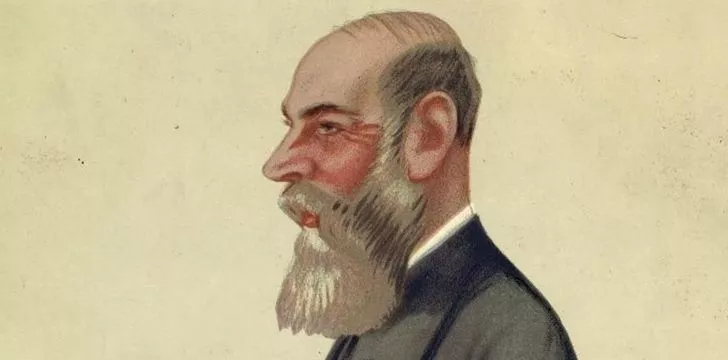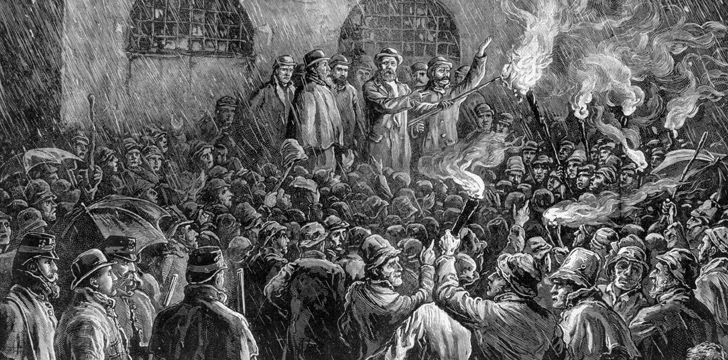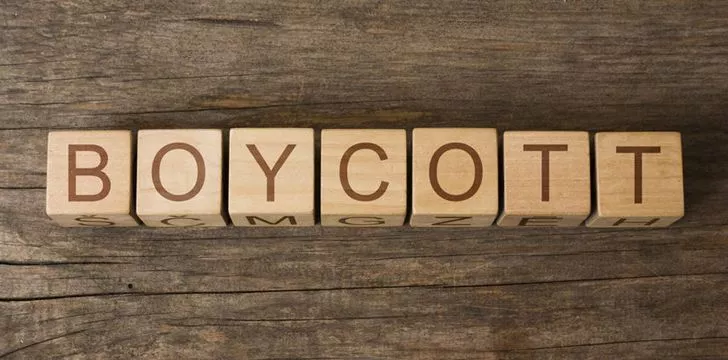We’ve all heard of boycotting events or places – in today’s world, anyone will boycott anything for any reason!
There are boycotts at sports events, boycotts of TV shows, movies, political rallies – everything!
Although, when you think about it, “boycott” is a little bit of a strange word.
How does the word relate to the action of not attending or doing something? Of isolating or ignoring something?
Just as strange, the word “boycott” doesn’t really hold any similarities to other words.
So, where did the word “boycott” come from? Well, let’s take it back to 1880 to find out.
Captain Charles Boycott

During the Irish “Land War” of the late 1800s, a British Captain by the name of Charles Boycott was the land agent of an absentee landlord called Lord Erne in County Mayo, Ireland.
In 1880, after a year of bad harvests, Lord Erne – thinking himself a generous man – offered his tenants a 10% reduction in their rents.
However, his tenants didn’t think this to be enough of a reduction, so they protested and demanded a 25% reduction.
Lord Erne refused this, dispatching his trusty land agent Captain Charles Boycott to evict the revolting tenants.
Shortly before this happened, a member of the Irish Land League known as Charles Stewart Parnell had proposed dealing with landlords and land agents through a peaceful form of social ostracism rather than resorting to violence.
Parnell proposed those in the local community should simply ignore the offender and conduct no business with them.
Boycotting Boycott

Soon after the news of Charles Boycott’s eviction drives spread, he found himself isolated within the local community.
Despite the short-term economic strife it bought them, his workers stopped working in his fields and stables, as well as at his house.
Local businessmen stopped trading with him, and even the local postman refused to deliver his mail!
Because of the action taken against him, Boycott was facing financial peril as nobody would take on the job of harvesting his crops.
Eventually, he hired 50 men from further out areas to come to harvest the crops.
He paid for an escort of 1,000 armed policemen and soldiers to bring them to his estate.
However, the Irish Land League’s promise of no violence had been 100% genuine as no violent action was taken against Boycott or his hired guns and workers.
The cost of Boycott’s protection for his harvesters has cost far more than the harvest had been worth, leaving him at a great financial loss.
After the harvest, the boycott on Boycott successfully continued.
Going Old-Timey Viral

It didn’t take long for the press to pick up on the boycott, and within a matter of mere weeks, Boycott’s name was everywhere!
James Redpath of the New York Tribune was the first person to use the word in the international press shortly after the incident, and The Times used the term to describe an organized isolation in November of 1880.
By 1881, the term “boycott” was now being used to describe things figuratively, with one article in The Spectator describing how nature had “Boycotted London from Kew to Mile End.”
Less than a year after the boycott on Boycott, the word was a staple of the English language worldwide.
So there you have it, the interesting and very unique origins of the word boycott!
It’s rather interesting just how the use of the word and the use of boycotting itself have stayed so very similar to their origins throughout the years!
Make sure to tell all your friends the source of the word “boycott” the next time you hear them mention it!












